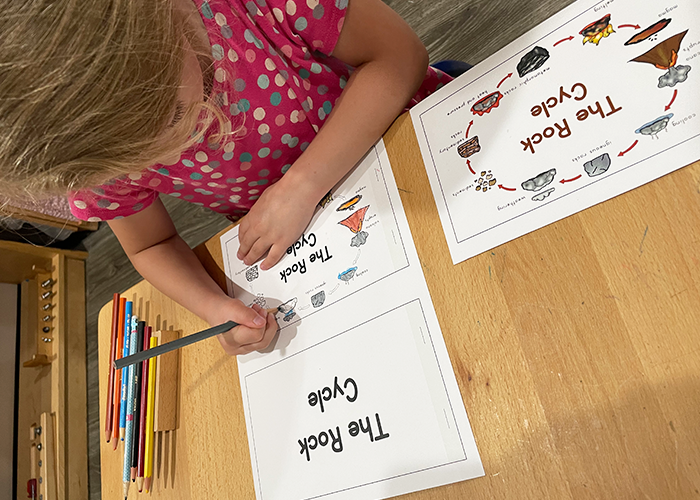The Prepared Environment: Designing Spaces for Optimal Early Childhood Exploration
- Kingwood Montessori

- Aug 1, 2025
- 3 min read

Step into any Montessori classroom, and you’ll notice something instantly—it feels different. The air is calm, the materials are organized, and children move around with a sense of purpose. That’s no accident. This kind of environment is built with intention, not just decoration. It’s called a "prepared environment," and it plays a huge role in how children learn during their early years.
At Kingwood Montessori School, we understand that the physical space around a child directly affects their growth—emotionally, socially, and cognitively. That’s why our classrooms are carefully designed to support exploration, independence, and confidence.
What Is a Prepared Environment?
In Montessori education, the prepared environment is a structured yet flexible space where children can explore at their own pace. Everything in the room—from the height of the shelves to the type of lighting—is planned to fit the needs of the child.
This setup encourages kids to make choices and solve problems on their own. It also supports their natural desire to learn. You won’t find flashy colors or overwhelming noise here. Instead, there’s a sense of calm that invites curiosity and focus.
Fostering Independence from the Start
Children thrive when they feel capable. That’s why furniture in our toddler and early childhood classrooms is scaled to size. Small hands can reach supplies, push in chairs, and tidy up without needing adult help. These small wins give kids a sense of responsibility early on.
As part of our early childhood education programs, materials are always arranged in a specific order. This teaches children sequencing and logic, even before they realize it. Plus, when everything has a place, it becomes easier for kids to concentrate and finish tasks from beginning to end.
Spaces That Speak to All the Senses
Learning doesn’t just happen at a desk. In Montessori, children engage with their environment using all their senses. That’s why textures, natural elements, and sensory-rich tools are an important part of every classroom.
For instance, in our toddler areas, you might find soft rugs for crawling, wooden puzzles, or baskets filled with smooth stones. Each item invites the child to touch, explore, and think. These kinds of early childhood education programs help shape the brain's development through active learning.
Freedom Within Limits
You’ll often hear that Montessori students have a lot of freedom—and they do. But that freedom comes with structure. Within the prepared environment, children can choose what they work on, but they also learn to respect the space and each other.
This balance builds self-regulation, patience, and social awareness. It also helps minimize power struggles and fosters an overall sense of harmony.
How the Outdoors Plays a Role
At Kingwood Montessori, we also believe that the prepared environment extends beyond four walls. Our outdoor areas offer real-world experiences that support physical growth and creative exploration. Water play, gardening, and nature walks all contribute to a richer, fuller learning process.
Even a simple walk outside can turn into a lesson in science, cooperation, or empathy. It’s all about letting children experience their environment in a meaningful way.
FAQs
1. Why is the prepared environment so important in Montessori?
It supports independence, focus, and confidence by giving children a structured space to explore freely.
2. Can toddlers really learn in such a structured setting?
Yes, toddlers naturally respond to order and routine when it's presented in a calm, child-friendly space.
3. How does this environment differ from a traditional preschool?
Unlike traditional settings, Montessori classrooms are intentionally designed to let children take the lead in their own learning.
Conclusion
At Kingwood Montessori School, we create spaces that are peaceful, empowering, and rooted in respect. These environments do more than just look nice—they teach kids how to think for themselves, care for others, and fall in love with learning.
If you're looking for an early childhood experience that nurtures exploration from day one, our classrooms are ready and waiting.



Comments